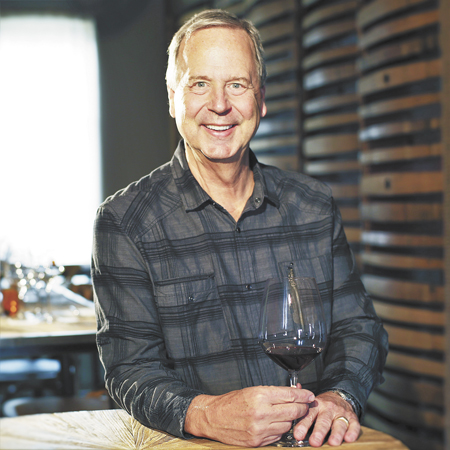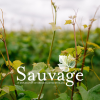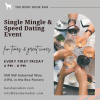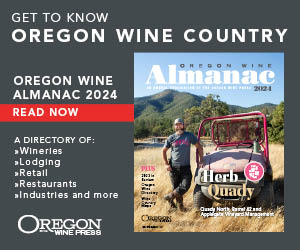Tim Hanni, MW
International "Flavor Maven" answers OWP

Tim Hanni, MW, is an internationally renowned “flavor maven.” A professionally trained chef, he is one of the first two resident Americans to successfully complete the examination and earn the title Master of Wine. A certified wine educator accredited by the Society of Wine Educators, he has been involved with wine- and food-related businesses, education and research for more than 35 years. Hanni has a unique perspective on food and wine, providing a modern and innovative approach to the subject. His techniques for creating easy-to-use wine lists and retail wine programs are combined with proven culinary philosophies on “balancing” food and wine flavors. Hanni is recognized for introducing the concept of the “umami” taste phenomenon to the wine and food community.
Word on the street is that you think wine and food pairing is way off base, even pointless. Can you explain more?
TH: It is important to know that I come from a culinary background that started in 1966 with a passion for wine that led to my passion for gastronomy. My own learning is grounded in French and European culinary and wine history and traditions. What we are doing today with wine and food ‘pairing’ is NOT grounded in the traditions of wine, are based on matching metaphors, and further misguided by pseudo-scientific explanations that can easily be shown in a systematic tasting process. To really grasp what I am proposing usually requires a lot of discussion and, even more importantly, demonstrations of wine and food interactions. But I hope people’s own interest in what I am doing is piqued by this seemingly ridiculous position! After years of careful consideration on my premises and principles of the Wine and Spirits Education Trust, wineries like Mondavi and many more, and also world famous chefs in the U.S. and even France have adopted and endorse all of this. Do the tastes of wines change with food? You betcha. But the experience is personal, highly dependent upon what you expect from a wine and far different from what people are taught to believe today. Our mission is to refocus on wine with food and to “match the wine to the diner, not the dinner,” a true tradition of wine throughout the history of Europe.
So what about the “tried-and-true” classic pairings?
TH: Here is a short list of some of the “untruths” that are perpetuated: (1) Fat does NOT make a wine less bitter or tannic — try unsalted beef, unsalted butter, canola oil, lard or whatever you like. Fat makes wine MORE bitter and astringent. No salt when you try it!! Salt suppresses bitterness. (2) The protein in a steak reacts with tannin or bitterness to make the wine smoother. Nope, doesn’t happen. (3) Salmon has a natural affinity with Pinot Noir. Wrong. (4) A metaphorically “big” or “heavy” wine will overpower a delicate dish. Sorry, not true. Put some Riesling, lemon juice and salt in a pan and simmer. Poach a delicate piece of sole, trout or halibut until perfectly cooked. Serve with a strong Syrah, Cabernet or whatever. Wine is awesome, fish is delicious, and you will go WOW!
Again, this is a very long discussion if you are passionate about pairing wine and food, but I have 30 years of research, workshops and investigation into all of this mess we have created. The intention is to find out the truth, promote the reality that starting with wines you love is the best strategy, and people are blown away when they experience what is really going on and how to make things more simple and enjoyable in real terms.
What is your main philosophy when creating a wine list?
TH: I have long promoted using a “Progressive Wine List” system (that also becomes a wine management and training tool), meaning that wines are listed in a progression from milder tasting to stronger tasting character. The important thing is have a wide diversity of flavor styles, pricing and attributes (regions, varieties, special characteristics) and have a balance of offerings, despite what you think does, or does not, “go with” the cuisine. Manage a great list, focus on the guest experience in a personal and individual way. That is truly what history teaches us, and the essence of hospitality.
Why has umami taste been so important to your work?
TH: About 30 years ago, I began conducting workshops with chefs, wine people and sensory researchers to get to the bottom of what happens with wine and food interactions vs. looking for the right or wrong match. We knew that sweetness in the food generates a sensory adaptation with wine that most people can relate to [when you brush teeth and (then) drink orange juice]. It is also very simple to provide another simple demonstration with a tiny bit of salt and lemon juice (or lime or vinegar), then try the wine — smooth and delicious. I was also traveling internationally and kept hearing about the primary taste called umami. There were many, many foods with no sweetness that seemed to have negative reactions with wine and, voilà! Umami in the food makes food delicious and makes your wine suck. Asparagus, seafood, aged cheeses, ham … the list is very long. And even beef, lamb and salmon (see above tirade). Even many educators teach about umami but do not really understand it.
Do you have any favorite Oregon AVAs or regions?
TH: I love them all and am so excited to see the improvements and specialization of varieties and styles! Oregon wines rock and offer a great diversity. And there is an inherent risk in some areas of mono-culture dictating what is grown and made of, say, Pinot Noir, and the wines becoming similar over time. I hope the diversity or regions and opportunities for wine growing is celebrated, refined and expanded.
Any new projects (research, books, etc.) in the works?
TH: Mostly working on wine business programs, train-the-trainer programs for culinary and hospitality people and continuing my research. I am excited to be in Oregon and we are loving it here! Hoping to have lots of workshops across Oregon in 2018 for business classes that I teach, consumer insights research we conduct and, of course, programs so people can get a sense of what I am really proposing for retooling wine and food.








